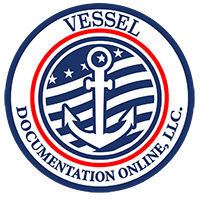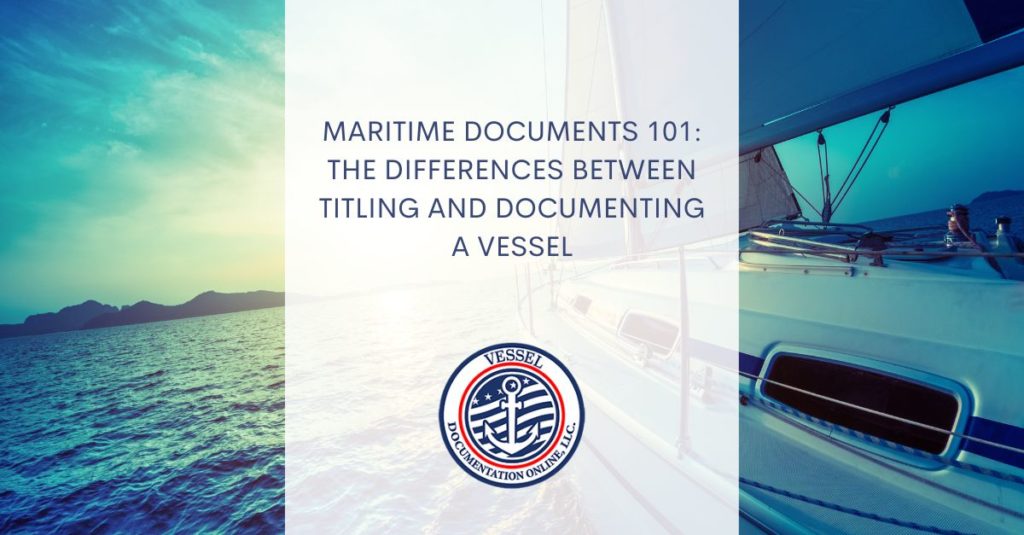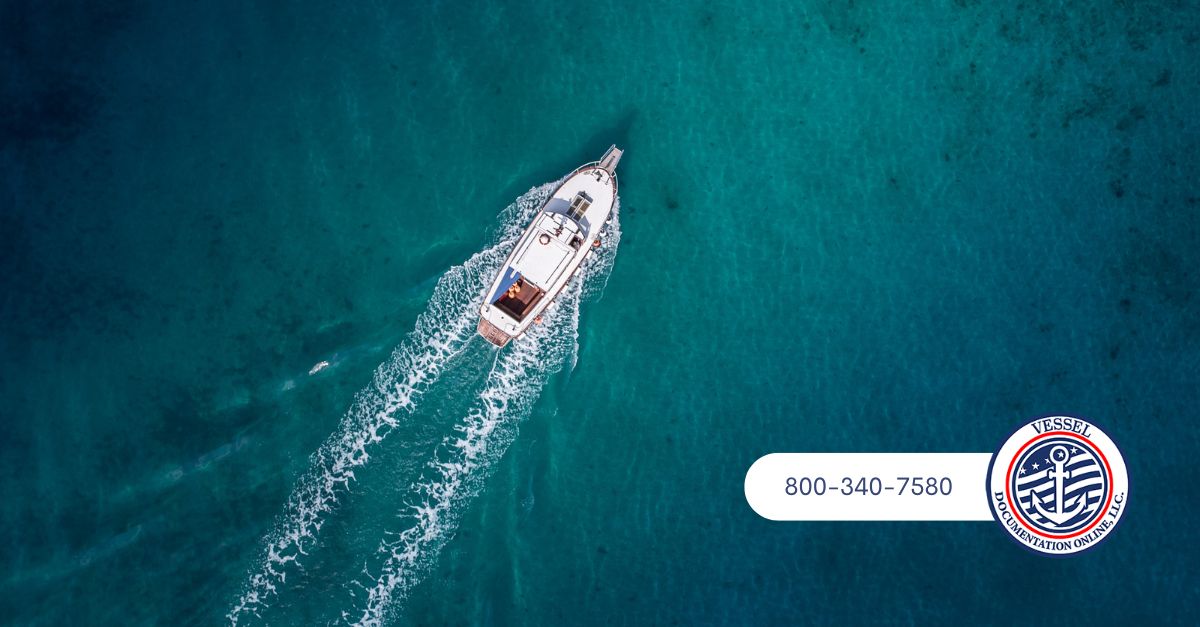With several types of maritime documents, you may be overwhelmed with trying to figure out what you need and don’t need. Fortunately, we are here to help you through the process. There are some differences between registering your boat with the United States Coast Guard and titling your vessel at the state level. Wondering which is applicable to you? This handy guide will help you understand the differences so you can get the right paperwork done for your boat.
United States Coast Guard Documentation
If your boat measures 5 net tons or larger, it’s eligible for registration with the U.S. Coast Guard. This federal registration has plenty of advantages, other than the legal requirements necessary to own and operate a boat. When you are registered with the USCG, you have permission to sail in international waters and may have priority when docking in a foreign country. It’s also much easier to sell a boat when it’s documented with the Coast Guard.
Upon application approval, you will be issued a Certificate of Documentation, which includes an Abstract of Title, which includes information about the boat, including its origin, ownership, and mortgages connected to the vessel. Only United States citizens can register with the Coast Guard, so keep that in mind. You’ll also get a unique identifying number that will stay with the boat, even if you sell it.
If you are ever boarded by the Coast Guard, it’s important to have all relevant paperwork in a clean, dry location where it can be easily accessed. This is for legal reasons, but also necessary if you ever have to call for emergency assistance.
Boat Titling Documentation
At the state level, you may be required to title your vessel, which is separate from the Abstract of Title you receive from the United States Coast Guard. Check with your state of residence about the requirements for titling your boat. In some cases, you will register in the state you live in, but in some cases, you could need to register in the state where your boat is docked (if it’s not the same state you live in).
When your registration is approved, you will receive a paper title, which is similar to the one you have for your car, truck, or SUV. You will need to keep this title on board your boat at all times. Make sure it’s in a place that is clean and dry. It should also be easily accessible just in case you ever need to show proof of titling for any reason.
Another thing to keep in mind is that if you plan to visit another state with your boat for more than 60 days, you may need to register it in that state. In some cases, you could have your boat registered in more than one state. Be sure to check the regulations regarding this in the relevant states, as restrictions vary from state to state.
Do you need help navigating the process for maritime documents? You’re in the right place. Contact the Vessel Documentation Online today and we’ll help you determine which documents you need and can help guide you through the process of getting them filled out and submitted.





